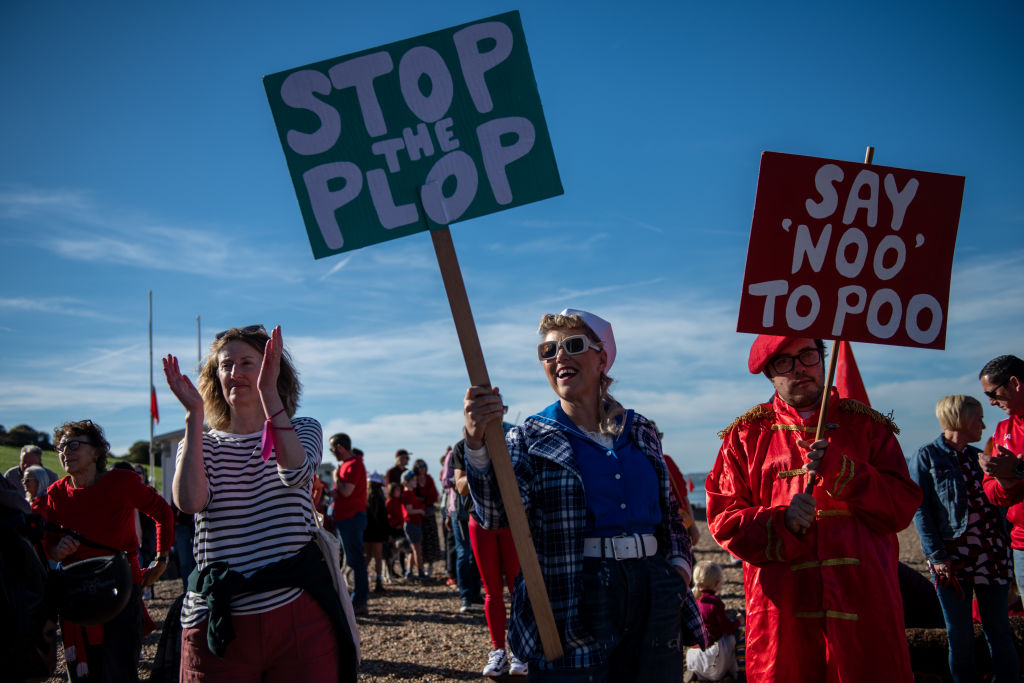Ofwat and the Environment Agency must have the willpower to fix the water industry

The heads of both leading watchdogs for the water industry were grilled in Parliament last week by MPs, facing questions over sewage spills, miles of leaky pipelines, chronic underinvestment in new projects, poor customer service and troubling water quality.
Yet, their answers to MPs are unlikely to reassure the public, with Ofwat coming across as technocratic and slow-paced, while the Environment Agency (EA) appeared more concerned with heavy fines for the sector than improving outcomes for customers.
To keep it simple, the Environment Agency oversees regulations for the quality of British waters, while Ofwat scrutinises the suppliers feeding sewage into them.
Ofwat boss David Black told the Welsh Affairs Committee that the regulator was looking to develop “sustained actions to drive up performance” amid public criticism over sewage leaks.
He said: “There has been a huge growth in concern about the discharges by water companies into rivers in particular. This does reflect growing public concerns about the state of the environment.”
However, Ofwat finds itself tinkering around the edges, with its primary threat to water companies so far being allocating less money under-pricing reviews rather than recommending bans or removing suppliers.
Black was also unprepared to determine what an unauthorised sewage outflow was, an increasingly bizarre position when the sight of a flowing pipe of excrement is a staple of most British beaches these days.
Meanwhile, departing EA chief executive Sir James Bevan gave an alarming testimony to the Environment, Food and Rural Affairs Committee last week – which exposed the EA’s own lack of willpower to take on the challenge of cleaning Britain’s rivers and the lack of tools at their disposal even if they wanted to.
He argued the EA’s remit had become increasingly challenging during his seven-year tenure, with sustained budget cuts year on year.
This would jeopardise its ability to reach targets set out in its 25-year environmental plan with the government including river health, water quality and quantity.
As it stands, just 14 per cent of rivers meet good ecological status instead of 75 per cent – one of many ambitious targets in the plan.
Bevan said: “If we do not get more resources over the next few years, I am not confident we will hit targets. I don’t think we will.”
However, Bevan also wasn’t prepared to challenge the financial arrangements water suppliers enjoyed – with the chief executive rejecting government proposals for up to £250m fines that breach environmental laws.
This is a sharp contrast to former chair Emma Howard Boyd pushing for water bosses to go to prison it they oversaw serious and sustained breaches of environmental laws.
He also denied the agency has been letting water companies mark their own homework.
Instead, Bevan argued the EA’s system of self-monitoring and reporting meant it was the EA which does the marking and forces water companies to pay for their pollution and sewage leaks.
“I actually think with those appropriate checks and balances, operator self-monitoring is a good thing,” he added.
We can only hope the new EA boss Philip Duffy will be less charitable towards suppliers which have underperformed so poorly, when he takes up the job in July.
Work together to reform industry
Opinions are subjective, but data is not – and Bevan’s own agency revealed that sewage discharges between 2016 and 2021 amounted to over 9.4m hours.
In the UK, the quality of water levels was flatlining with 62 serious water-pollution incidents in 2021, which was being driven by population growth, global warming and the conduct of water suppliers.
Nevertheless, with the charge sheet facing suppliers ever growing – there is a growing possibility for the industry to put water firms under pressure, with all parties working together over the issue,
DEFRA secretary Therese Coffey finally entered the debate last month and announced that water companies across England will have to explain why storm outflows are happening and what is being done to fix them, under new government plans to clamp down on sewage spills.
She wants all water and sewerage firms to provide an improvement plan for every storm outflow – with suppliers being told to prioritise sewage reductions at bathing sites and nature habitats.
Meanwhile, the EA has teamed up with Ofwat to investigate every company across the industry over potentially unauthorised sewage spills, and have taken enforcement action against six suppliers.
This includes Anglian Water, Northumbrian Water, South West Water, Thames Water, Wessex Water and Yorkshire Water.
Separately, Ofwat found that 14 companies underspent their budget on improving their water network and eight companies underspent their budget for improving their wastewater network between 2020 and 2022.
The watchdog has also ordered water firms to toughen up plans to secure reliable services in the coming decades, in Ofwat’s latest clampdown on the much-maligned industry.
If they fail to come up with more ambitious strategies, City A.M. understands Ofwat could cut the funding and profit allowances for suppliers for the upcoming price review.
While the testimonies of industry bosses fail to be reassuring, the recent actions from the two watchdogs suggest a viable pathway to a more stringently regulated industry – with DEFRA secretary on side.
The question is whether they have the willpower to achieve it.